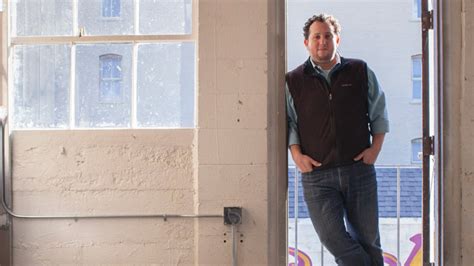A Quote by Jack Welch
If I had to run a company on three measures, those measures would be customer satisfaction, employee satisfaction and cash flow.
Related Quotes
Too often we measure everything and understand nothing. The three most important things you need to measure in a business are customer satisfaction, employee satisfaction, and cash flow. If you’re growing customer satisfaction, your global market share is sure to grow, too. Employee satisfaction gets you productivity, quality, pride, and creativity. And cash flow is the pulse—the key vital sign of a company.
There are only three measurements that tell you nearly everything you need to know about your organization's overall performance: employee engagement, customer satisfaction, and cash flow...It goes without saying that no company, small or large, can win over the long run without energized employees who believe in the mission and understand how to achieve it.
Your typical business just measures the metrics that have to do with the profitability of the business one way or another. But you can have metrics that measure employee happiness and the morale. You can also do direct customer surveys; you can track it over time. You can do supplier satisfaction scores as well.
If your cash is about to run out, you have to cut your cash flow. CEOs have to make those decisions and live with them however painful they may be. You have to act and act now; and act in the best interest of the company as a whole, even if it means that some people in the company who are your best friends have to work somewhere else.
Those whose primary concern is to destroy others are at the lowest level of development. Those who are only interested in their own satisfaction are farther along. Those who both do things for their own satisfaction and the satisfaction of others are even father along. Then there are saints who just constantly live for the welfare of others.
The pendulum of cookery techniques became more significant than the actual experience. And when that happens, the customer's satisfaction becomes secondary to the chef's satisfaction. And in that case, you have an upside-down equation. Because the customer is the basis of our restaurant, first of all, and if the chef becomes the most important person at the table - even more so than the guests - then suddenly you're left with something that doesn't really work.
How do we receive the highest mystery of Divine love to us ? the mystery of the Christian faith? With our mind, heart and life; with our free will? Are all the three powers of our souls penetrated by holy faith, as were the souls of the saints? The kingdom of heaven 'is like leaven, which a woman took and hid in three measures of meal till the whole was leavened' (Lk. 13:21). The three measures are the three powers of the soul.
































